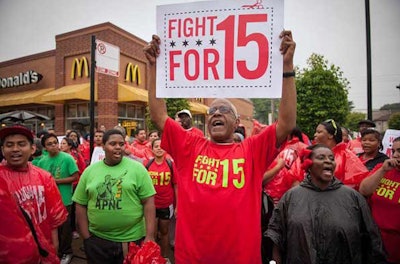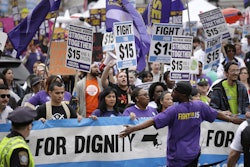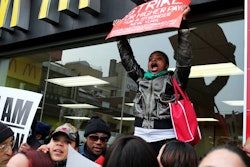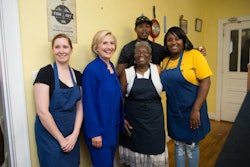
Fast-food workers demanding a $15 an hour wage walked out in dozens cities at 6 a.m. Tuesday, kicking off a year-long campaign to muster the political power of 64 million low-wage workers in next year's presidential election, according to USA Today.
The protests, which were scheduled to take place in 270 cities, mark the workers' largest show of force in the three years since they launched a series of rallies to call for higher pay and the right to unionize, according to Fight for $15, which represents the workers and is backed by the Service Employees International Union.
Tens of thousands of workers and supporters were expected to take part in Tuesday's demonstrations, which began around dawn at McDonald's outlets in downtown Brooklyn, Boston and Philadelphia, among other locations. Protests in as many as 700 additional cities were planned by low-paid home care, child care, farm, FedEx, nursing home and other workers throughout the day.
To read more, click HERE.
Editors Insight: The political momentum favors higher minimum pay for fast food workers and for a higher minimum wage. Presidential candidate Hillary Clinton has voiced her support for the measure, and so far, opposition has not been forthcoming. The outlook is promising for a higher minimum wage in the near future.
The impact on the consumer will be a 25 percent increase in fast food prices, as Food Logistics previously reported.
The impact will be felt throughout the food supply chain. A higher minimum wage will increase labor costs, which makes the case for automation stronger. Automation and robotic technology have evolved in recent years and the cost has decreased.
Rising labor costs will also hasten the deployment of e-commerce in the food industry since e-commerce is less labor intensive than physical retail stores.
The case for automation in the food supply chain continues to improve in response to rising labor costs. 11-10-15 By Elliot Maras
















